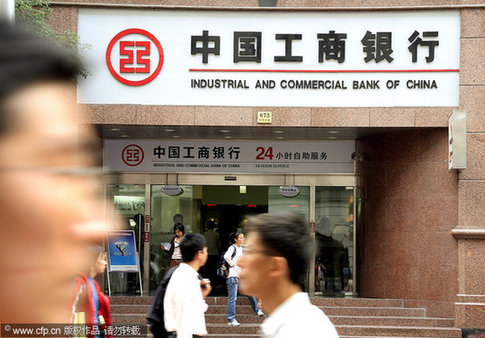ICBC says will maintain reasonable, balanced lending

The Industrial and Commercial Bank of China (ICBC), the world's largest lender by market value, said on Wednesday it would maintain a "reasonable and balanced" lending rate, in a move to ease mounting concerns about possible credit cuts.
"The ICBC will not rush to lend, nor will it halt lending," the bank said in a statement to the media.
The ICBC would stick to a "prudent" credit policy and maintain a reasonable and balanced pace of lending based on real demand and its own ability to handle financial risks, the statement said.
The statement said loan growth in early and mid-January was "a little fast" as many ongoing projects needed funds, but the lending pace had stabilized since, as a concentrated volume of existing loans had come due and some credit card debts had been repaid.
To prevent economic overheating, the government last week announced it would restrict its overall credit growth to 7.5 trillion yuan (1.1 trillion U.S. dollars) in 2010, compared with last year's 9.59 trillion yuan.
Media reports Tuesday said Chinese lenders had already extended 1.45 trillion yuan in new loans in the first 19 days this year, which pushed regulators to keep a closer eye on banks by asking for credit extending information on a daily basis.
To curb massive lending, the central bank raised the reserve requirements on banks by 0.5 percentage points last week, the first increase in 18 months, which analysts forecast would help freeze 250 billion yuan of liquidity.
Concerns about the impact of lending curbs on market liquidity drove Chinese equities down for the fourth consecutive day to close at 2,986.6 points on Wednesday, slipping below 3,000 points for the first time in three months.
Banks led the decline, down 3.08 percent. ICBC lost 1.8 percent to 4.9 yuan despite its Tuesday forecast of 15-percent credit-boom-driven profit growth in 2009.
ICBC also said it would focus on financing ongoing government projects and continue to extend more loans to small businesses, while strictly control loans to new projects and high energy-consuming and polluting industries.
 0
0 







Go to Forum >>0 Comments